Puig-Charlotte Tilbury acquisition: ‘It’s an interesting choice’ but ‘totally makes sense’
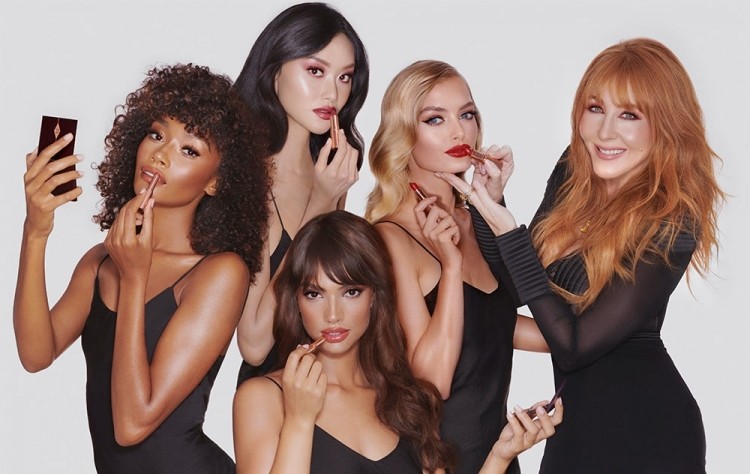
Following months of speculation around the rumoured sale of British makeup artist Charlotte Tilbury’s namesake beauty business, Puig is set to acquire a majority stake in the business. Merchant bank BDT Capital Partners will also invest alongside Puig and hold a minority stake.
The deal will see Tilbury continue as chairman, president and chief creative officer of the company she founded in 2013 in what is being described a ‘partnership’ between Puig and Charlotte Tilbury. Tilbury will also maintain a significant minority stake in the company.
Charlotte Tilbury a ‘compelling’ brand addition
Puig said the deal with Charlotte Tilbury added an “established and rapidly-growing” makeup and skin care brand to its existing portfolio of fashion, fragrance and luxury beauty brands.
“The entry of a brand as compelling as Charlotte Tilbury, with a solid product portfolio and strong digital capabilities, will reinforce Puig’s position in the category and make Puig a strong three-axis global competitor in the luxury beauty category,” the Spanish fashion and fragrance specialist said.
Puig already owned a number of established fashion and fragrance brands, including Christian Louboutin, Prada Parfums, Jean Paul Gautier, Nina Ricci and United Colors of Benetton, among others; a handful of which had some cosmetic products.
Puig said Charlotte Tilbury – an “iconic” beauty and skin care brand – shared core values with Puig, including creative storytelling, an entrepreneurial mindset and sincere passion for empowering people through beauty.
For Charlotte Tilbury, the deal gave important access to Puig’s established global footprint and operations.
Puig versus Unilever: Puig offers ‘unrequired attention’ and ‘unlimited resources’
Speaking to CosmeticsDesign-Europe about the deal, Gabriella Beckwith, senior beauty and fashion analyst at Euromonitor International, said: “It’s an interesting choice for Charlotte Tilbury, especially with flying rumours of offers from the likes of Unilever who hold a much larger presence in the beauty and personal care space.”
Puig ranked 21st in the global beauty and personal care market, Beckwith said, with only a “minor presence” in colour cosmetics, though it was actively trying to change this.
“With Puig actively trying to ramp up its beauty portfolio, it could be that the deal provides Charlotte Tilbury with the unrequited attention needed to further enlarge its global presence and portfolio,” she said.
Charlotte Tilbury’s 2019 expansion into Latin America, for example, would hugely benefit from the deal given Puig’s “robust foothold” in this market – Latin America was Puig’s second-largest sales region globally, she said.
Yamina Tsalamlal, consumer analyst at GlobalData, said the deal “totally makes sense” when looking at Puig’s overall strategy to expand globally in fashion, fragrances and beauty. It also had a history of acquiring fashion houses and partnering with successful brands to do so, Tsalamlal said.
Puig would provide “unlimited resources” to Charlotte Tilbury, she said, perhaps even more than other rumoured contenders.
“This is likely a stronger brand partnership than with Unilever – a leading contender to buy Charlotte Tilbury,” she said.
The Spanish firm certainly had plenty to offer, given its “decades of experience in fashion, design and luxury” and “strong track record” with the likes of Carolina Herrera, Nina Ricci and Jean-Paul Gaultier in its roster, Tsalamlal said.
Puig primed to become ‘superior competitor’ in beauty
Beckwith said the majority stake acquisition provided Puig the opportunity to become a “superior competitor” and “greater rival” to major players across the globe.
“The deal will offer Puig a chance to improve its makeup portfolio through lessons learnt from Charlotte Tilbury’s successful marketing and innovation strategies, benefiting Puig’s other cosmetics lines Christian Louboutin and its recently launched Carolina Herrera makeup range,” she said.
It also acted as a reminder that there was still confidence in premium beauty brands to deliver growth during uncertain COVID-19 times, where premium colour cosmetics was set to take “one of the biggest hits”, she said.
Tsalamlal added that the deal also reflected the “general trend of personality-driven beauty brands” – the success of celebrity and influencer beauty brands.
“For Puig, Charlotte Tilbury brings her brand, her personality and her celebrity. Not to say that the other fashion brands don’t bring that to Puig, but Tilbury in particular gained popularity thanks to her YouTube tutorials, her massive social media following and, of course, her connection with the likes of Amal Clooney and Kate Moss thanks to her successful career as a makeup artist.
“…Charlotte Tilbury brings the personality and celebrity that Puig can harness to stay relevant in an ever-evolving industry,” she said.
Charlotte Tilbury fragrance expansion on the cards?
Beckwith added that given Puig was “exceptionally well known for its strengths in producing fragrances”, this could be a direction the company takes Charlotte Tilbury moving forward.
Charlotte Tilbury currently had one fragrance, launched in 2016, but under Puig “an expansion of Charlotte Tilbury fragrances could be on the cards”, she said.

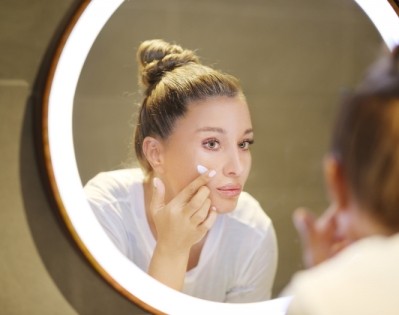
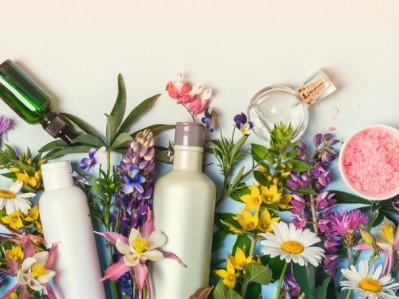
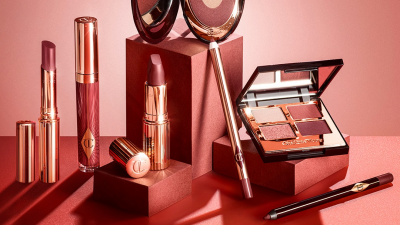



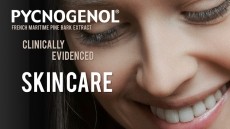


![Chinese study highlights mental health challenges in atopic dermatitis, emphasising holistic patient care. [Getty Images]](https://www.cosmeticsdesign-europe.com/var/wrbm_gb_food_pharma/storage/images/_aliases/wrbm_tiny/publications/cosmetics/cosmeticsdesign-asia.com/headlines/formulation-science/chinese-research-linking-atopic-dermatitis-to-mental-health-underscores-need-for-holistic-care/17040623-1-eng-GB/Chinese-research-linking-atopic-dermatitis-to-mental-health-underscores-need-for-holistic-care.jpg)








